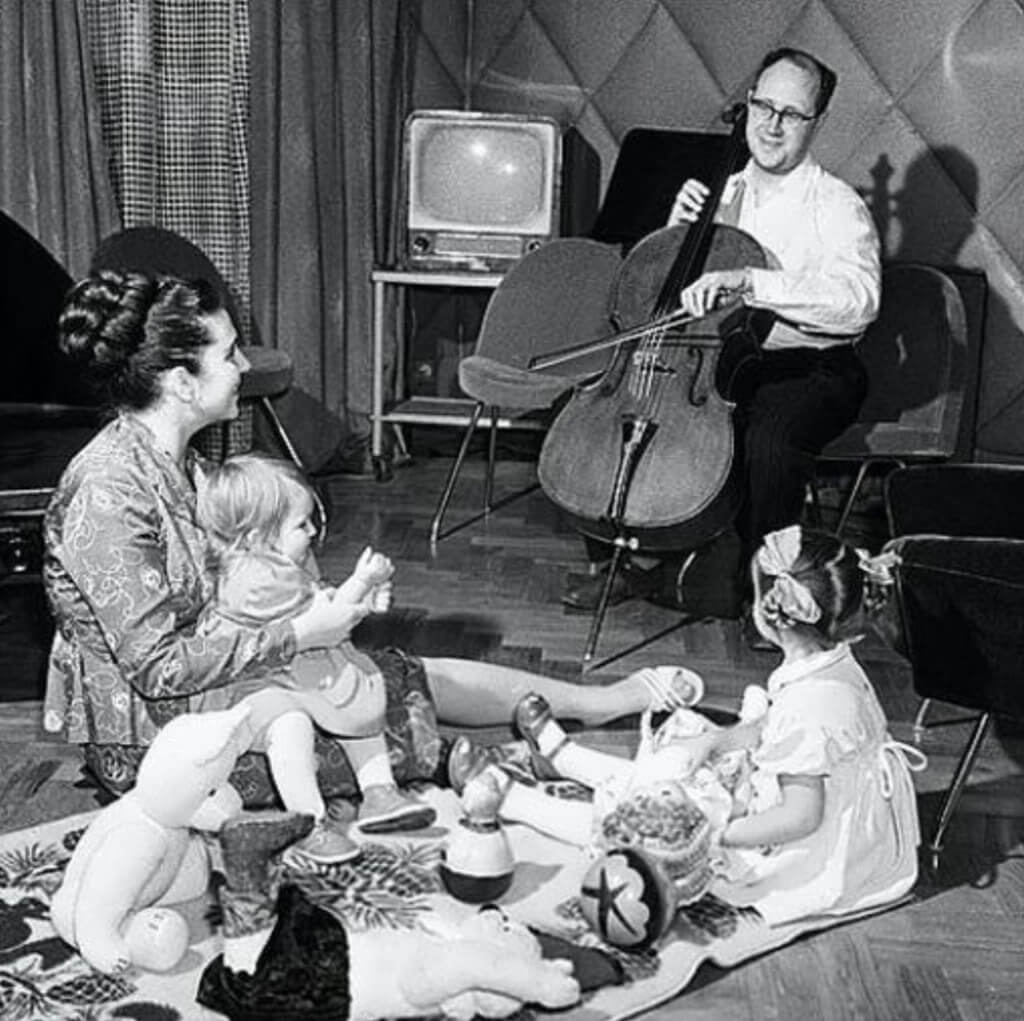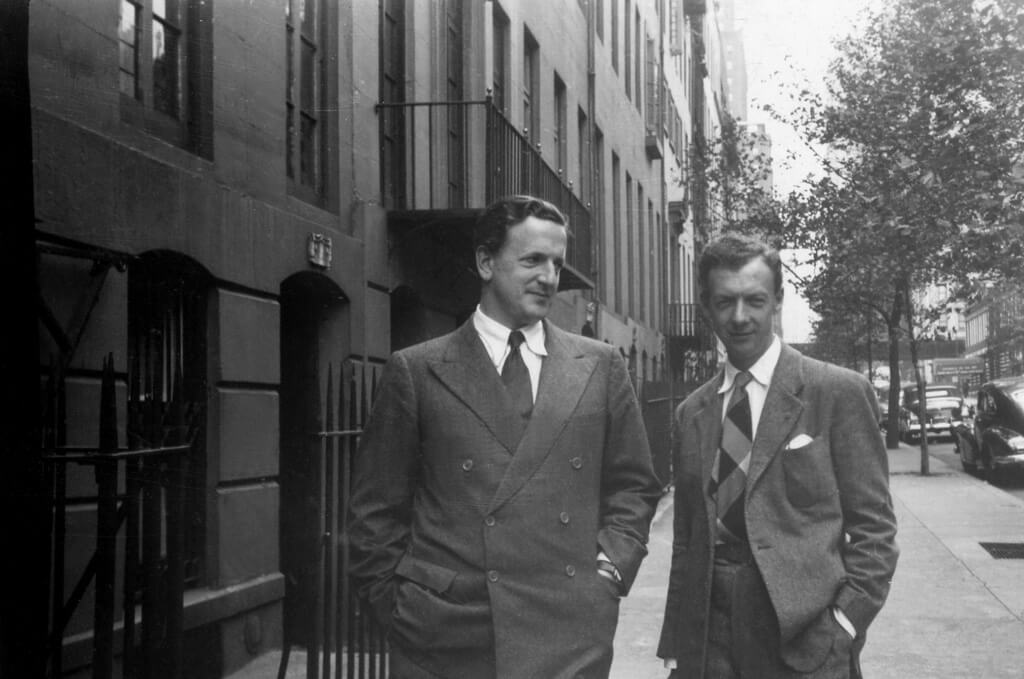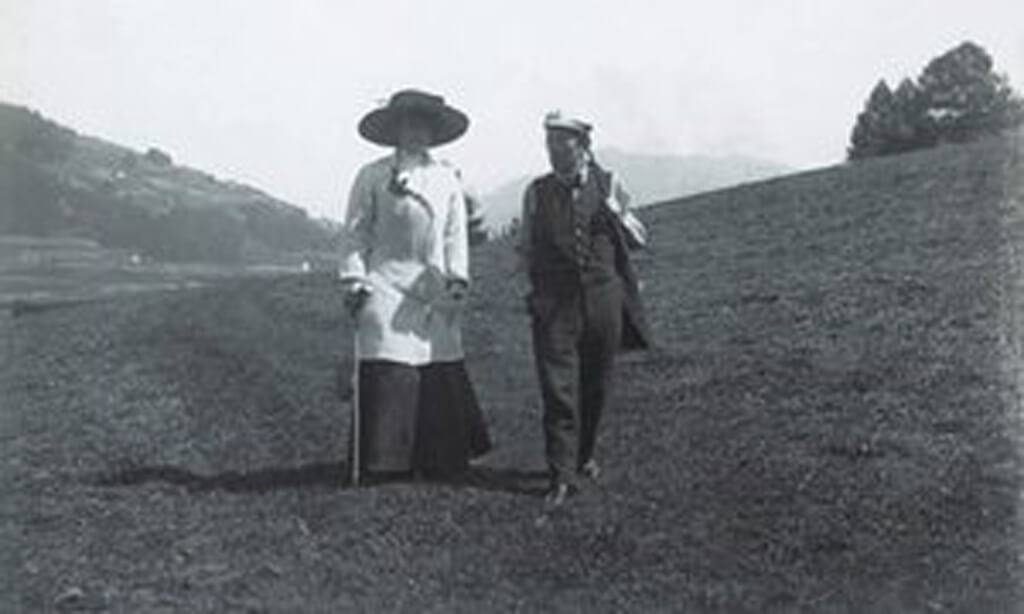Mstislav Rostropovich and Galina Vishnevskaya

Engaged within four days of meeting (and with one of them already married!), this powerhouse duo exemplifies the love that can blossom when two of the twentieth century’s most passionate musicians meet. Eventually exiled from their native Russia for being “ideological renegades” and speaking out against the lack of artistic freedom under the Soviet regime, Rostropovich and Vishnevskaya were united by a commitment towards social activism as well as their musical careers. Both musicians inspired and premiered numerous works by Shostakovich, Prokofiev, Messiaen, Berio, Britten, Penderecki, Schnittke and countless others. They also inspired one another, with Vishnevskaya claiming she learned to breathe by listening to her husband play the cello, and Rostropovich experimenting with different cello fingerings to replicate his wife’s parlando singing effect. Couple goals, much?
Pierre Bernac and Francis Poulenc

This French romantic couple of dreams — baryton-martin Pierre Bernac and composer Francis Poulenc — were inseparable in 1930’s France. Poulenc composed over nintey songs for Pierre Bernac, who was his “conscience and counsellor” (Graham Johnson) for twenty-five years as Poulenc composed operas and choral music. And where would any young singer be without Bernac’s The Interpretation of French Song? Much love for this musical French couple.
Benjamin Britten and Peter Pears

Partnered for thirty-five years, Britten and Pears were united by not only their deep attraction one another, but their respect for each other’s artistry. Britten wrote to Pears in 1974, “I do love you so terribly, not only glorious you, but your singing. […] What have I done to deserve such an artist and man to write for?” Pears replied in heart-wrenching fashion, “I am here as your mouthpiece and I live in your music.” Stuff of romance novels, no? Except that Pears inspired some of the greatest, most cerebral and psychologically compelling works of the twentieth century, including Britten’s final opera based on the novel by Thomas Mann, Death in Venice.
Wolfgang Amadeus Mozart and Constanze Weber

Despite Mozart’s portrayal as a childish buffoon in the 1984 film Amadeus, Mozart was a man of steadfast devotion and love. As Mozart wrote his final opera, Die Zauberflote, he could barely listen to his own music as it filled him with such longing for his wife. He wrote in 1791: “I can’t describe what I have been feeling — a kind of emptiness, which hurts me dreadfully — a kind of longing, which is never satisfied, which never ceases, and which persists, nay rather increases daily […] If I go to the piano and sing something out of my opera, I have to stop at once, for this stirs my emotions too deeply” (964). On the occasion of Constanze’s final farewell to her beloved husband, her friend described: “Words fail me, dearest brother, to describe how his devoted wife in her utter misery threw herself on her knees and implored the Almighty for His aid. She simply could not tear herself away from Mozart, however much I begged her to do so” (Haibel 977).
Gustav and Alma Mahler

In Romeo and Juliet fashion, Gustav fell in love with Alma Schindler at first sight, proposing to her within a few weeks of meeting. Yet the Schindler family discouraged Alma from marrying the much senior and originally Jewish composer and director of the Vienna State Opera. The couple married despite both Alma and her family’s better judgment, as Alma the glamorous socialite was unsuited for the solitary, brooding Mahler, whom she felt disapproved of her compositional pursuits. Nevertheless, their dysfunctional relationship inspired the adagietto from Mahler’s Fifth Symphony — a piece that has made the world a better place with its aching, simple beauty.
#LUDWIGVAN
- LISTEN UP |Cherry Blossom Season Requires A Cherry Blossom Classical Playlist - May 11, 2018
- HANGOUTS | Carla Huhtanen’s Guide To Toronto - May 8, 2018
- HANGOUTS | Spending The Day With Jane Archibald - April 12, 2018



